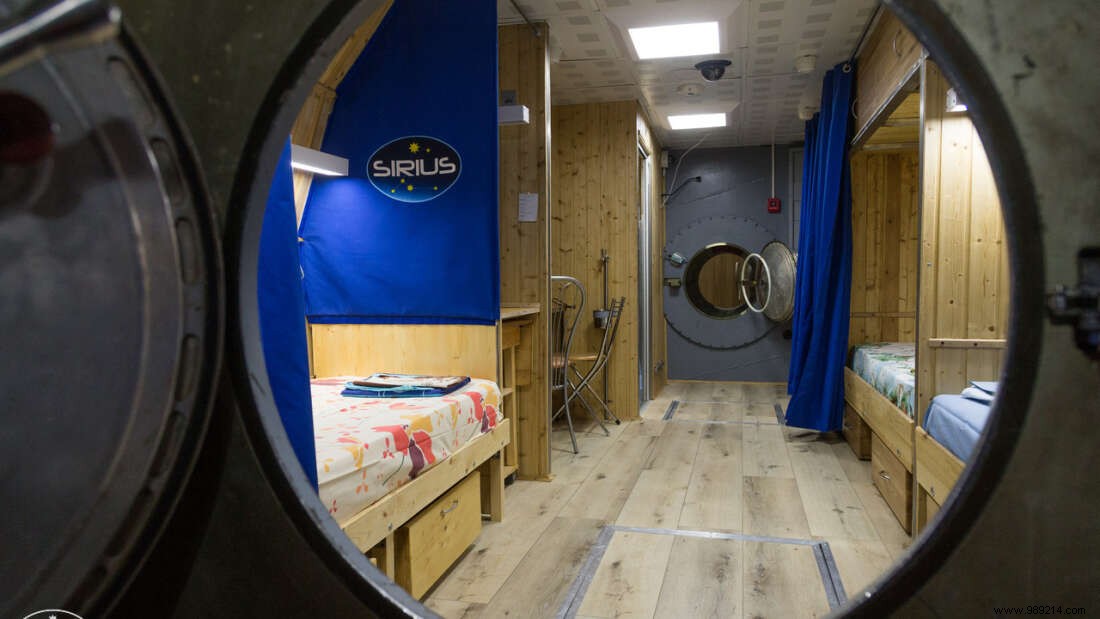New simulations of long-duration Mars missions suggest that future crews will quickly detach from the control center to evolve independently.
Several agencies aim to send humans to Mars before 2040. To do this, many challenges will have to be overcome. On the technical level, on the one hand, it will be a question of ensuring a safe landing on the red planet. In terms of health, let us remember that we are the fruit of millions of years of evolution, shaped by the pressure, the atmosphere, the temperatures and the earth's gravity. Also, we will also have to evaluate our body's response to this hostile Martian environment.
Nevertheless, let's not forget the psychological and behavioral issues, often less discussed . A mission to Mars will indeed induce a long journey, forced isolation and communication delays of up to twenty minutes in each direction inherent to the distance that separates the red planet from Earth.
The fact is that the researchers simply have no idea how a team isolated nearly 380 million miles from home could manage on the spot. Would the astronauts maintain constant communication with Earth and work perfectly as a team? Or on the contrary, would they break away from their superiors by forming an autonomous colony?
To try to anticipate these reactions, Russian researchers have developed the SIRIUS project, which aims to better understand the psychology of astronauts during long space flights . And new results, published in Frontiers in Physiology, confirm some concerns.
This work is based on two isolation experiments of 17 and 120 days in 2017 and 2019 , respectively, each time involving a mixed crew of twelve people.
Previous simulations suggested that crews dispatched there would begin to disconnect from Mission Control quickly. These new experiments make the same observation, pointing out that the communication delays coupled with the extended time away from Mother Earth will cause astronauts to withdraw into themselves .
In detail, both crews quickly began to reduce their communications with the mission control center, with rare exceptions such as important mission events like simulation landing operated mid-course. According to the report, the astronauts became detached to the point of sometimes ignoring recommendations made by the center to become increasingly self-sufficient as they adapted to their mission.
The crew taking matters into their own hands could be seen as a positive sign. However, the team in charge of the project also points out the possible setbacks of this type of twist. “The negative side is that mission control loses the ability to understand the needs and issues of the crew, which consequently hinders the ability to provide support “, details Dmitry Shved of the Russian Academy of Sciences and the Moscow Aviation Institute.

These two experiments also highlighted that women were initially more likely to report problems encountered to the control center, while men were less likely to communicate them. Interestingly, these initially different communication characteristics eventually became more and more similar over the course of the mission, each adapting to the other's communication style.
Note that another Project SIRIUS experiment has been underway since November 4, this time involving an eight-month isolation .